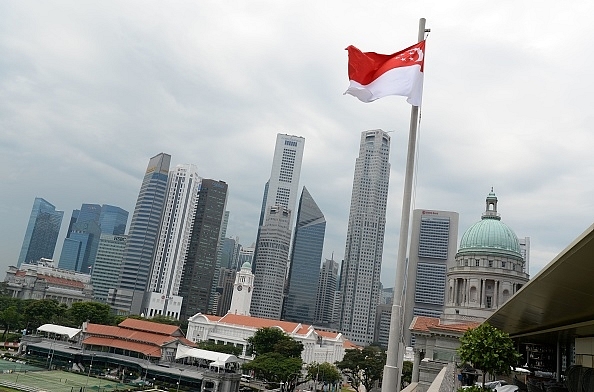World
OECD Overlooks Amazing Success Of Low-Tax Singapore, Urges Higher Taxes In Asia
- Recent statistics published by OECD given in Revenue Statistics in Asian Countries has overlooked Singapore being developed on the basis of tax consumption being 25 per cent of GDP.

Credit-Getty Images
I wrote a rather favourable column a few days ago about a new study from economists at the Organization for Economic Cooperation and Development. Their research showed how larger levels of government spending are associated with weaker economic performance, and the results were worth sharing even though the study’s methodology almost certainly led to numbers that understated the case against big government.
Regardless, saying anything positive about research from the OECD was an unusual experience since I’m normally writing critical articles about the statist agenda of the international bureaucracy’s political appointees.
That being said, I feel on more familiar ground today since I’m going to write something negative about the antics of the Paris-based bureaucracy.
The OECD just published Revenue Statistics in Asian Countries, which covers Indonesia, Singapore, Malaysia, South Korea, Japan, and the Philippines for the 1990-2014 period. Much of the data is useful and interesting, but some of the analysis is utterly bizarre and preposterous, starting with the completely unsubstantiated assertion that there’s a need for more tax revenue in the region.
“…the need to mobilise government revenue in developing countries to fund public goods and services is increasing. …In the Philippines and Indonesia, the governments are endeavouring to strengthen their tax revenues and have established tax-to-GDP targets. The Philippines aims to increase their tax-to-GDP ratio to 17% (excluding Social Security contributions) by 2016…and Indonesia aims to reach the same level by 2019.”
Needless to say, there’s not even an iota of evidence in the report to justify the assertion that there’s a need for more tax revenue. Not a shred of data to suggest that higher taxes would lead to more economic development or more public goods. The OECD simply makes a claim and offers no backup or support.
But here’s the most amazing part. The OECD report argues that a nation isn’t developed unless taxes consume at least 25 per cent of GDP.
“These targets will contribute to increasing financial capacity toward the minimum tax-to-GDP ratio of 25% deemed essential to become a developed country”.
This is a jaw-dropping assertion in part because most of the world’s rich nations became prosperous back in the 1800s and early 1900s when government spending consumed only about 10 per cent of economic output.
And not only were taxes a concomitantly minor burden during that period, but many nations didn’t have any income taxes at all.
At this point, you may be thinking the OECD bureaucrats are merely guilty of not knowing history.
That certainly would be a charitable explanation of their gross oversight/mistake.
But there’s something else in the study that makes this benign interpretation implausible. The study explicitly notes that Singapore is a super-prosperous developed nation with a very low tax burden – way below the supposed minimum requirement identified by the OECD.
“Singapore has the highest GDP per-capita of the six countries and one of the lowest tax-to-GDP ratios. …The low tax-to-GDP ratio is explained by lower income tax rates (particularly on corporate income) and VAT rates, compared to other Asian countries. …The tax-to-GDP ratio in Singapore is lower in 2014 relative to 2000, driven by the decrease of individual income tax rates and corporate income tax rates”.
Here’s a chart from the report showing that taxes consume less than 14 percent of economic output in Singapore.
Needless to say, there’s nothing in the report to square the circle. Nothing to explain why Singapore manages to be so rich with such a small burden of government. It’s as if the bureaucrats hoped that nobody would notice that numbers in the study undermined their ideologically driven claim that tax burdens should climb in Asia.
Indeed, I wonder if Hong Kong was omitted from the study simply because that would have further undermined the OECD’s preposterous assertion that higher taxes are a route to economic development.
This piece was first published on International Liberty and has been republished here with permission.
Introducing ElectionsHQ + 50 Ground Reports Project
The 2024 elections might seem easy to guess, but there are some important questions that shouldn't be missed.
Do freebies still sway voters? Do people prioritise infrastructure when voting? How will Punjab vote?
The answers to these questions provide great insights into where we, as a country, are headed in the years to come.
Swarajya is starting a project with an aim to do 50 solid ground stories and a smart commentary service on WhatsApp, a one-of-a-kind. We'd love your support during this election season.
Click below to contribute.
Latest